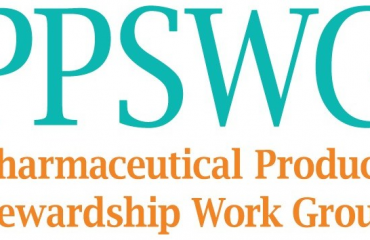Better Vaccines, New Treatments And More Tests: Healthcare Companies Reveal Covid Plans – Forbes
Preparation of a Covid antibody treatment
This week marked the 40th annual J.P. Morgan Healthcare conference, one of the biggest industry events of the year. The conference, held virtually this year, featured hundreds of companies across the sector discussing their accomplishments in 2021 and what they expect for 2022. Of course, dominating every discussion was the ongoing Covid-19 pandemic, and several companies directly involved in developing Covid-19 treatments, vaccines and tests. Here are some of the highlights of these presentations from the four-day event.
Pfizer CEO Albert Bourla said that “We have a virus that’s a lot harder to deal with than we previously thought,” a reference to the high number of mutated variants that have been seen over the course of the pandemic. To that end, he said, the company is working on an update to its vaccine to deal with omicron and other variants. The data for that will be available in March and Bourla said Pfizer is already switching up manufacturing lines for the updated vaccine. BioNTech CEO Uğur Şahin echoed many of Bourla’s comments about the vaccine the two companies have jointly developed together. Şahin also discussed its AI-powered system to warn of potentially threatening new variants, which it claims was able to identify some variants of concern before the WHO did.
Novavax began shipping its Covid vaccine last quarter and administrations started last month. 10 million doses have been shipped to Indonesia with 40 million more on the way. The company also plans to ship 27 million vaccine doses to the EU this quarter and over 40 million more next quarter. CEO Stanley Erck notes that this may indicate demand to overcome vaccine hesitancy, since Novavax’s Covid vaccine is based on a more mature technology. “People simply want a safe and effective protein-based alternative,” he said. Erck also said that Novavax’s vaccine may be authorized for use in the U.S. in February. Novavax is also currently in clinical trials for a flu/Covid booster combination shot.
Moderna CEO Stephane Bancel highlighted the growth of his company’s vaccine business, which shipped 807 million doses in 2021 and took in over $17 billion in revenue. The company’s next big thing is its work on a vaccine that can tackle multiple respiratory viruses at once. It’s currently doing clinical trials for a Covid/flu combination and plans to expand that over the next few years to include RSV and even a common cold. “We think this is in reach,” Bancel said.
In 2021, Regeneron delivered 2.8 million doses of its antibody cocktail used to treat Covid-19 and generated $5.8 billion in net sales in the U.S, CEO Leonard Schleifer said Monday. The cocktail is less effective against omicron, but the company plans to get its newly identified monoclonal antibodies that work against it into the market this quarter. “We have begun to scale up production,” added George Yancopoulos, the company’s chief scientific officer. Regenron’s main focus in the coming years will be to deliver antibodies to immunocompromised patients, for whom vaccines are less effective.
Adagio Therapeutics is developing an antibody against Covid-19 that aims to be able to tackle variants of the virus as it evolves. Preliminary data the company reported finds that it is active against the omicron variant. Currently, the company is determining the proper dose of its antibody for patients and has paused its clinical trials so it can reach alignment with regulators on moving forward. “The good news is there’s a lot of data now,” CEO Tillman Gerngross said.
Pfizer announced at the conference that it’s preparing to manufacture 120 million doses of its Covid antiviral treatment, Paxlovid. That’s more than it currently has pre-orders for. Bourla said this is because the company anticipates high levels of orders from governments for stockpiling purposes.
Both GSK and Vir discussed the Covid antibody treatment the two companies developed together, sotrovimab. The companies sold over 750,000 doses of the treatment, which still shows efficacy against omicron, in 2021 and plan to produce 2 million in the first half of this year. The companies plan on filing for an EUA for an injectable version of the drug, which would make distribution easier, as it now requires an IV. Vir is also working on a next-generation antibody against Covid, as well as a pan-coronavirus vaccine and a small molecule drug that might work as a treatment against multiple respiratory infections, including the flu, Covid and RSV.
Abbott CEO Robert Ford says his company is now producing over 100 million rapid tests per month globally, with capacity to ramp that up further. While the company does expect demand to drop down after the current omicron wave, it expects sustained demand for the test, particularly from schools, which can use rapid tests as tools to control outbreaks and remain open.
Trevor Martin, CEO of Mammoth Biosciences, noted that the performance of his company’s Crispr-based Covid testing performed comparably to PCR but in a faster and more affordable way. The company says it’s close to bringing the technology to patients. “We’re very focused on taking these technologies out of the lab and bringing them closer and closer to the patient’s life,” Martin said.
Quidel, the manufacturer of QuickVue Covid-19 tests, reported during the conference that it saw a 10x sell-through of its products through Walgreens and CVS between the first and last weeks of December. The company plans to increase its manufacturing capacity to meet demand and is delivering 100 million tests to the federal government. The company expects that the tests will remain a part of its business as time goes on. “We do anticipate some level of Covid moving forward,” said CEO Douglas Bryant.
Additional reporting by Aayushi Pratap



